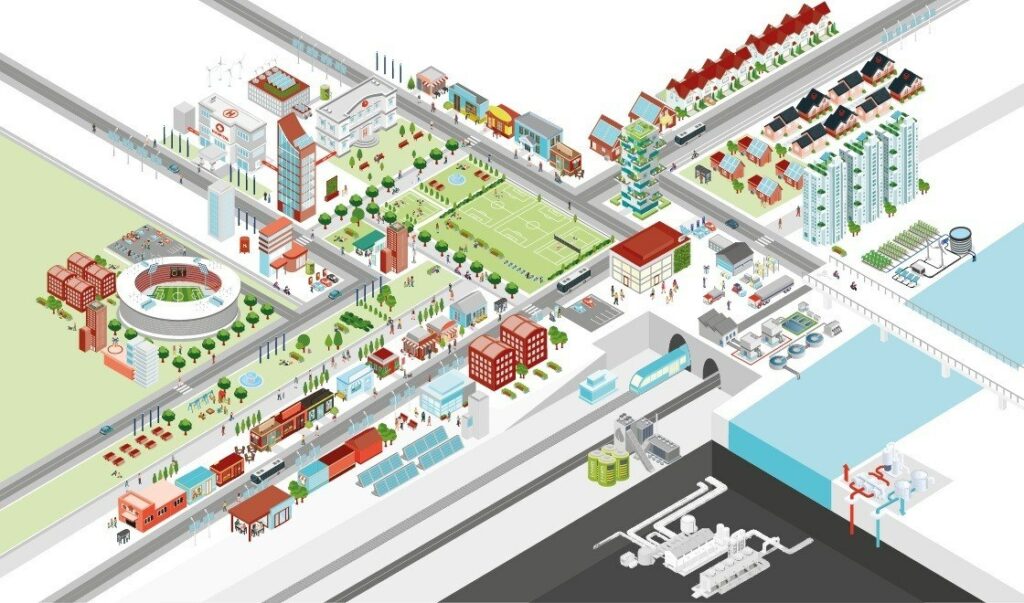There is an urgent need to transform Britain’s cities and incorporate green technologies to ensure the nation meets its 2050 net zero targets.
According to a new study from E.ON and the UK Green Building Council, major upgrades are needed to combat the climate crisis and meet environmental targets.
Alongside this, there is an urgent need to develop new economic landscapes post-Covid, enhance the wellbeing and health of citizens and overcome energy and water conservation challenges.
“Cities consume almost four-fifths of the world’s energy and emit more than 60% of greenhouse gas emissions, so it’s vital that they lead in way in transforming how they are heated and cooled, how transport is managed, and how they support people’s lives,” said Michael Lewis, chief executive of E.ON UK.
“We must create communities that reduce our impact on the planet while being inclusive, safe and equipped to offer every citizen access to a good quality of life. The decade ahead is crucial. We need to use it to take action for climate which means fundamentally rethinking our urban areas: to decarbonise and to clear the air in our streets, and also to build communities able to adapt to a changing climate and help mitigate further irreversible changes.”
The two organisations collaborated on an initiative called Streets of the Future, which draws on insight from experts across energy, transport and the built environment to analyse methods of achieving net zero in cities. This includes incorporating:
- Smart technology helping people to use less energy and reduce reliance on fossil fuels
- Giving new life to old buildings by re-using and re-purposing existing structures and materials and transforming them for new uses
- Create new green spaces for pedestrians and wider roles for public transport, reducing dependency on private vehicles which would ease congestion whilst reducing emissions and air pollution
- Greater use of nature, such as rewilding and more green spaces such as rooftop gardens and green walls, as well as sustainable drainage systems mimicking natural processes while enhancing biodiversity
“Our buildings, streets and cities shape our lives in profound ways. But we urgently need to rethink how they are designed, constructed and maintained if we are to meet the needs of society,” said Julie Hirigoyen, chief executive of UK Green Building Council.
“We’re all only too aware of the impact of rising energy prices and recent extreme weather conditions on individuals, households and businesses across the country. Our streets and cities must now urgently adapt and transform so that our communities and nature can thrive, as we work toward achieving our net zero 2050 target.”
As the UK races towards its decarbonisation targets, finding the best pathway to achieve net zero has become a key discussion point. To review this, former Energy Minister Chris Skidmore MP has been urging the general public and British businesses to disclose the best routes to achieving net zero and decarbonisation as part of the MP’s independent net zero review.
The independent review will highlight areas to improve and could optimise the UK’s approach to reaching net zero and lowering carbon emissions. It will also seek to ensure a just transition is achieved in all corners of the UK, making sure no one is left behind or excluded.





